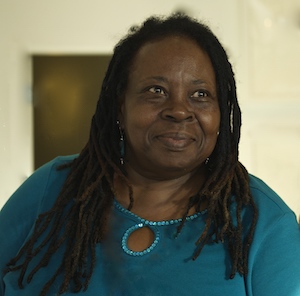Op-ed
Policy Matters Ohio, Cleveland VOTES, others coalescing to center voices of everyday Clevelanders
Last year, while candidates for mayor and city council ran for office, a group of community-based organizations began a different campaign: to rebuild Clevelanders’ faith in their city government.
In recent elections, fewer Clevelanders came out to vote. The team at Policy Matters – a nonprofit public policy institute – partnered with the pro-democracy group Cleveland Votes to understand why. They polled 700 Clevelanders who said they care deeply about their community, but don’t vote because they haven’t seen how city government can improve their lives.
Although turnout remained low in the last election, Clevelanders voted for change. They elected the city’s second youngest mayor, Justin Bibb, and passed Issue 24 to enact historic police reform. Last year, President Biden and Congress passed the American Rescue Plan Act, sending $511 million to Cleveland. The Bipartisan Infrastructure Plan will provide additional funds to rebuild roads, improve public transit and clean up Lake Erie. Policy Matters and its partners want city hall to seize the moment.
“For years, too many politicians and their corporate backers have stoked racial fears and division, pitting west side against east side, so they could rig the rules for their profit,” said Policy Matters Executive Director Hannah Halbert. “It’s no surprise that many people don’t think voting makes a difference. But with a mandate for change and transformative federal dollars, Clevelanders can come together and chart a new course.”
Policy Matters’ Cleveland work will focus on three key areas: justice reform, fair work, and participatory budgeting. Building on Issue 24’s momentum, Policy Matters researcher Piet van Lier is supporting coalition partners to develop alternatives to armed police response. His analysis suggests that many calls to police could be handled by professionals other than armed officers and shifting resources to alternative responses could free up police to deal with issues where they’re needed.
“Across the country, and even in Cleveland, we are seeing proven strategies for dealing with people in crisis that don’t include an armed response,” van Lier said. “By passing Issue 24, the residents of Cleveland showed they want to reimagine public safety. The Bibb administration and city council can leverage federal funds to do even more. It’s up to us to come together and push them in the right direction.”

Artist and activist Gwen Garth is a member of PB CLE.
Policy Matters helped found the Northeast Ohio Worker Center so working people could be treated more fairly on the job. The center launched the “Guardians for Fair Work” campaign this year. The goal is to pass a city ordinance that prevents unscrupulous employers from stealing people’s wages by not paying them for all the hours they work, or by paying below the minimum wage. In Ohio, employers steal from an estimated 217,000 workers each year through minimum wage violations alone. An outsized share of victims are black, indigenous, Latinx or other people of color. The campaign also seeks “fair scheduling” protections so working people can plan their lives without employers calling them in or cutting their hours without proper notice.
"Cleveland can be a better place for families and working people,” said Policy Matters Outreach Director Daniel Ortiz, a member of the Guardians Steering Committee. “A place where workers can stand up for what they are owed, and workplaces offer predictable schedules, so all Clevelanders can make ends meet and take care of our families."
Both initiatives require public resources. That’s why Policy Matters belongs to PB CLE — a coalition that’s bringing participatory budgeting to Cleveland, so residents have a direct say over how city leaders spend a portion of federal COVID relief dollars. As member Gwen Garth said, “people are rising up to get their share.”
PB CLE coordinating committee member Molly Martin said that over the last 10 months, the coalition hosted workshops in neighborhoods across the city to gather community input and educate people about participatory budgeting. So far, over 60 organizations and hundreds of Clevelanders in all 17 wards have signed a petition calling on the city to adopt participatory budgeting.
"It's up to the people to lead new experiments in democracy building,” Martin said. “When we come together, we have the power to decide what our communities need.”
• • •• • •
Learn more about Policy Matters’ work and get involved at policymattersohio.org/Cleforall.














